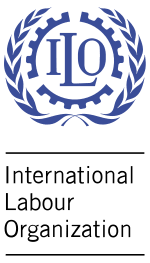ILO refers dispute over right to strike to ICJ in Hague
It instructs the Director-General to transmit the resolution to the ICJ and to seek the participation in the advisory proceedings of the employers’ and workers’ organizations that enjoy general consultative status with the ILO.

The Governing Body of the International Labour Organization is to refer a dispute over the right to strike to the International Court of Justice in the Hague.
In a special session, held on 10 November, delegates took a decision by vote to urgently refer the matter to the court.
In a second special session, held on 11 November, a proposal to urgently include a standard-setting item on the right to strike on the agenda of the 112th Session of the International Labour Conference in 2024, was not endorsed.
The Governing Body decided that after receiving the advisory opinion of the International Court of Justice, it would consider appropriate follow-up action.Background to the disputeFor many years, the ILO Committee of Experts on the Application of Conventions and Recommendations, consisting of independent experts responsible for monitoring the application of ratified Conventions by Member States, has taken the view that the right to strike is a corollary to the right to freedom of association, and that, as such, it is recognized and protected by the Freedom of Association and Protection of the Right to Organise Convention, 1948 (No. 87).
However, the Employers’ group began increasingly to question the Committee of Experts’ interpretation of Convention No. 87. The controversy gradually intensified and in 2012 gave rise to a major institutional crisis, with the Conference Committee on the Application of Standards being prevented for the first time from exercising its supervisory functions.
Under Article 37 of the ILO Constitution, any question or dispute relating to the interpretation of Conventions can be referred for decision to the International Court of Justice. The article also provides for the possible appointment of a tribunal for the resolution of such disputes.
The first special session of the Governing Body agreed that conscious of a ‘serious and persistent disagreement within the tripartite constituency of the ILO’ on the interpretation of Convention No. 87, with respect to the right to strike, in accordance with article 37 of the ILO Constitution, to “request the International Court of Justice to render urgently an advisory opinion….. on the following question: ‘Is the right to strike of workers and their organizations protected under the Freedom of Association and Protection of the Right to Organise Convention, 1948 (No. 87).”
It instructs the Director-General to transmit the resolution to the ICJ and to seek the participation in the advisory proceedings of the employers’ and workers’ organizations that enjoy general consultative status with the ILO.
The International Court of Justice is the principal judicial organ of the United Nations. Its role is to settle, in accordance with international law, legal disputes submitted to it by States and to give advisory opinions on legal questions referred to it by authorized United Nations organs and specialized agencies.










